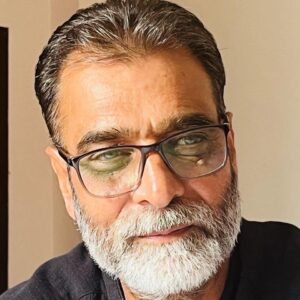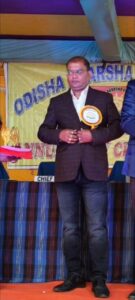Republic Promises and the Kashmiri Citizen: What Did 1950 Truly Assure Us?
Imtiyaz R. Chashti

On 26 January 1950, India did not merely adopt a Constitution; it made a solemn covenant with its people. The transition from colonial rule to a republic was meant to transform subjects into citizens, endowed with rights, dignity, and a voice in shaping their collective future. For Kashmir, a region whose political and emotional relationship with the Indian Republic has always been layered and complex, these promises carry particular weight.
Beyond ceremonial parades and patriotic rhetoric, the Constitution articulated guarantees meant to touch everyday life: equality before law, protection of personal liberty, freedom of expression, and social justice. These were not ornamental ideals; they were legal commitments, enforceable in courts, intended to restrain the state and empower the citizen.
At the heart of the Constitution lies the promise of fundamental rights. Articles 14 to 21 assured every citizen’s equality before law, freedom of speech and association, protection against arbitrary arrest, and the right to life with dignity. For a society emerging from colonial repression, these provisions were revolutionary. They acknowledged that democracy is hollow unless citizens are protected from the excesses of power.
In Kashmir, where extraordinary laws, prolonged security measures, and frequent restrictions have shaped public life, the relevance of these rights is not theoretical. The constitutional promise was that liberty would be the norm and restraint the exception; that procedure would replace arbitrariness; and that citizens would not be reduced to passive recipients of authority. The Constitution did not envision rights as privileges granted by the state, but as inherent entitlements that even the state must respect.
Equally significant was the promise of equality. Article 14 rejected discrimination, while Article 15 prohibited exclusion on grounds of religion, caste, sex, or place of birth. Article 17 abolished untouchability, a moral and legal rupture with centuries of social hierarchy. Importantly, the framers recognized that formal equality alone could not undo historical injustice. Hence, affirmative action was constitutionally sanctioned to uplift communities long denied opportunity.
For Kashmir, with its internal social stratifications, rural and urban divides, regional disparities, economic marginalization, equality was meant to be corrective, not cosmetic. The republic promised not sameness, but fairness: recognition that justice sometimes requires differentiated support to achieve genuine parity.
Perhaps the most profound assurance was embedded in Article 21, the right to life and personal liberty. Over decades, the Supreme Court expanded this to include the right to dignity, livelihood, privacy, and humane treatment. This interpretation underscores a crucial constitutional truth: life is not merely biological existence; it is the ability to live without fear, humiliation, or perpetual uncertainty.
In conflict-affected societies like Kashmir, dignity becomes the most fragile currency. Checkpoints, detentions, communication shutdowns, and economic disruptions are not abstract policy choices; they affect the texture of daily life. The Constitution’s promise was that even in moments of crisis, human dignity would remain non-negotiable.
Another foundational commitment of the republic was democratic self-rule. Universal adult franchise, granted from the very beginning, placed faith in the political wisdom of ordinary citizens, farmers, laborers, women, and the poor. This was a bold choice in a newly independent, largely illiterate nation.
For Kashmiris, participation in democratic processes has often oscillated between engagement and alienation. Yet, the constitutional design was clear: authority flows upward from the people, not downward from power. Elections were meant to be instruments of accountability, not rituals of endorsement.
Finally, the Constitution acknowledged that political freedom alone was insufficient. Through the Directive Principles of State Policy, it committed the state to social and economic justice, education, healthcare, fair wages, and protection of the vulnerable. Though not enforceable in courts, these principles were described as fundamental to governance, a moral compass for legislation and policy.
Seventy-five years later, the Kashmiri citizen stands at a crossroads between constitutional promise and lived experience. The Constitution did not guarantee perfection, but it did guarantee a framework for redress, dissent, and dialogue. It assumed an active citizenry, one that questions, participates, and holds institutions accountable.
A republic survives not on symbolism alone, but on trust between the state and its people. For Kashmir, renewing that trust requires revisiting the original constitutional covenant, not selectively, but in its entirety. Rights cannot be episodic, equality cannot be conditional, and dignity cannot be deferred.
The true test of the Indian Republic lies not in how power is exercised at its strongest, but in how rights are protected at their most vulnerable. For Kashmir, the promise of 1950 remains relevant, not as nostalgia, but as an unfinished constitutional obligation.
P.S.: Rebuttals, comments, and reasoned responses are welcome and may be shared at:
imtiyazchashti@gmail.com

 Hi
Hi